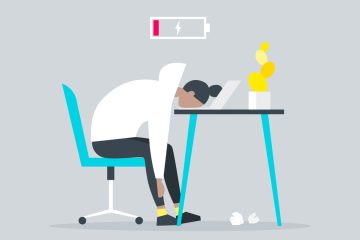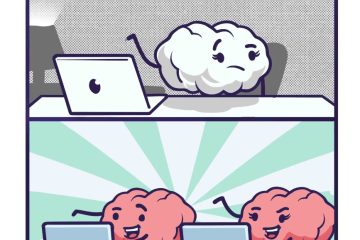Spoon Theory is a metaphor created by Christine Miserandino to explain what it’s like living with limited energy (for any reason). Instead of assuming everyone starts the day with the same supply of energy, Spoon Theory suggests we each have a limited number of “spoons” to spend. Each spoon represents a unit of energy, and once they’re gone, they’re gone.
For some people, everyday tasks might not feel draining. However, for neurodivergent people, the same tasks can consume more spoons due to factors such as heightened sensitivity leaving them more tired and more prone to burnout.
Exploring what drains and what replenishes spoons can be a great way to find a better balance in life. It can also help with self-compassion by recognising that what drains and replenishes spoons is different for different people.
It can be helpful to split spoon-draining tasks into:
- Sensory activities
- Cognitive and executive functioning activities
- Social and emotional activities
- Physical activities
Spoon Theory helps people visualise and communicate their energy limitations to others, and also reminds them to prioritise how they use their own energy.
What are the signs of running low on spoons?
While everyone’s experience is unique, there are some common signals that you may be running out of energy for the day:
- Sudden fatigue that makes even simple tasks feel impossible
- Heightened irritability or difficulty regulating emotions
- Struggling to focus, plan, or make decisions
- Physical heaviness, aches, or slower movement
- Needing longer recovery times after activity
- Feeling overwhelmed by tasks that normally feel manageable
- A sense of frustration, guilt, or shame about not being able to “keep up”
Spoon Theory looks different for everyone
Not everyone experiences energy limitations in the same way. The number of spoons someone starts the day with can depend on health, stress levels, sleep quality, and even the social or physical environment they’re in.
For example:
Someone with chronic pain may find that basic self-care tasks use most of their spoons, leaving little left for work or hobbies.
Or a neurodivergent person may lose spoons quickly in overstimulating environments, even if the tasks themselves seem small to others.
Context matters too. A person with strong support systems or accessible accommodations may preserve spoons much more easily than someone constantly battling barriers.
How to manage spoons
If you relate to Spoon Theory, managing your energy is essential. Here are some strategies that can help:
- Prioritise essential tasks: Identify what must be done today, and let go of what can wait! Using an Eisenhower Matrix can be really helpful for this.
- Plan recovery time: After using several spoons, schedule rest before moving on.
- Bank spoons: If you know a spoon-draining event is coming up, rest beforehand to bank some spoons.
- Communicate your limits: Saying “I’m out of spoons” can help others understand when you need to stop.
- Practice self-compassion: Remind yourself that running out of spoons is not laziness; it’s a natural limitation.
How to prevent running out of spoons too quickly
While you can’t always control how many spoons you start with, you can take steps to make them last longer:
- Pace yourself: Break tasks into smaller steps and spread them throughout the day.
- Batch and simplify: Group similar tasks together or reduce unnecessary steps.
- Say no (when you need to): Protect your energy by setting boundaries without guilt.
- Delegate: Delegating tasks or accepting support can stretch your spoons further and be empowering.
- Build routines that restore energy: Discover what restores your spoons and build it into routines, e.g. gentle exercise, restful hobbies, or calming environments can help you recharge.
Spoon Theory is about recognising your limits and using your energy wisely. It provides a language for people to explain their experience and a framework for self-care. By understanding your own spoons and honouring when they run out, you can live more sustainably and help others understand what it really takes to get through each day.
POTENTIAL SPOON TAKERS
– Socialising in large or noisy groups
– Bright lights, strong smells, or background noise
– Long commutes or crowded public transport
– Meetings without breaks
– Unexpected changes to plans
– Decision-making, especially under pressure
– Small talk or masking in social situations
– Housework, cooking, or chores that require multiple steps
– Medical appointments or paperwork
– Lack of sleep or poor-quality rest
– Overcommitment or saying “yes” too often
– Being in environments that aren’t accessible or accommodating
– Physical pain or flare-ups of illness
– Shopping or errands in busy spaces
– Travel and packing/unpacking
– Financial stress or admin tasks
– High-stakes deadlines
– Trying to multitask
– Guilt about resting or “not doing enough”
POTENTIAL SPOON GIVERS
– Quiet time alone to decompress
– Gentle movement like stretching or walking
– Listening to calming music, podcasts, or audiobooks
– Restorative naps or early nights
– Spending time in nature
– Breaking tasks into smaller steps
– Comfort items like blankets, heat packs, or favourite drinks
– Mindfulness, meditation, or grounding exercises
– Familiar routines that reduce decision-making
– Time with trusted people who don’t drain energy
– Sensory regulation (noise-cancelling headphones, dim lighting)
– Celebrating small achievements
– Therapy, counselling, or supportive spaces
– Laughter, humour, or creative expression
– Permission to rest without needing to earn it


